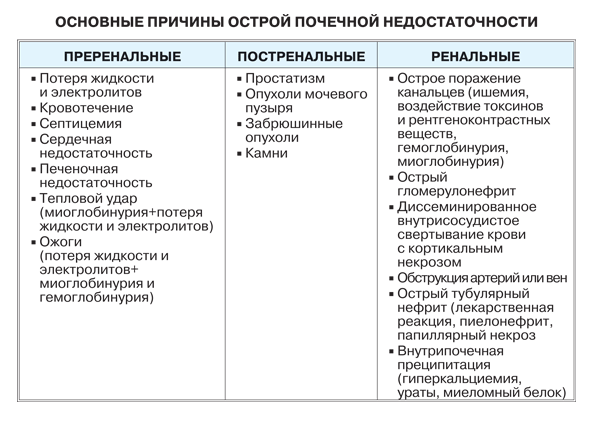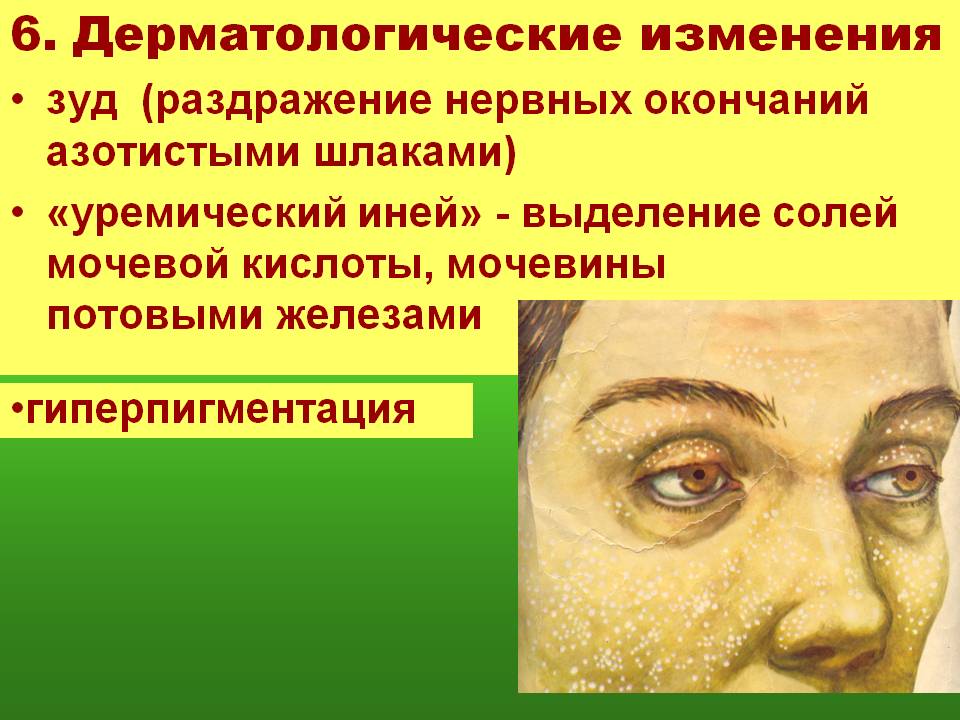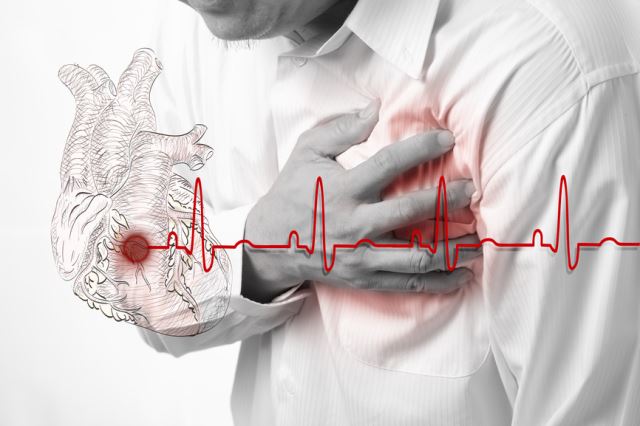Kidney failure
Diseases of the urinary system are quite serious, and if the kidneys fail, a fatal outcome is possible. This pathology is quite serious, since it is characterized by the complete inability of the internal organ to perform its functions. The patient has a water-salt and acid-base imbalance. If the kidneys fail, then urine cannot be properly excreted from the body, which provokes its death. In most cases, a person’s negligent attitude to health leads to kidney failure. Since in case of injury or pathological damage to the kidneys, if you seek help in a timely manner, it is possible to resume their function.
The essence of pathology
With the help of the kidneys, metabolic products are filtered, so this organ is so necessary for a person. During its work, the internal organ removes toxins and harmful substances. When kidney failure occurs, it leads to impaired blood filtration and stagnation of urine in the body. In this case, there is an accumulation of toxins that poison all the internal organs of a person. In the case of severe poisoning, many organs cease their function and their failure is observed. If you do not seek help in a timely manner and do not carry out cleansing work in the internal organs, then the chance of surviving a person is zero.
Kidney failure is preceded by various causes. Violation of the functions of the internal organ is diagnosed in adults and children. In some cases, there is a failure of one kidney, and under severe circumstances, the pathology extends to two organs. If both kidneys fail, the prognosis for the patient is extremely unfavorable.
Varieties
acute form
 Toxic poisoning can trigger the mechanism of kidney failure.
Toxic poisoning can trigger the mechanism of kidney failure. When an acute form of kidney failure is observed, this means that the function of the organ has been sharply impaired in a person due to toxic poisoning. In this case, if you go to an ambulance in time, you can avoid the symptoms of kidney failure and save a human life. The acute form of pathology develops due to a violation in the body of the balance of water, electrolytes, acid, alkali. This is due to a violation of the renal blood flow, as a result of which metabolic products accumulate and are not excreted.
chronic course
Chronic kidney failure occurs due to pathologies that have led to self-poisoning of the human body with waste products. The chronic course of the disease differs from the acute one in that the symptoms do not appear immediately, but gradually make themselves felt. In this case, healthy kidney tissue takes over the work of the damaged area. Over time, healthy tissue is not able to do all the work, as a result, the kidneys refuse to work, which indicates the final degree of kidney failure.
The main causes of kidney failure
 The main cause of the pathology is the destruction of nephrons, which provokes dysfunction of the filtration system. Sources that influence the development of pathology are divided into three groups: renal, postrenal and prerenal. Postrenal causes are obstruction of the urinary canals that lead to the kidneys. Sources of postrenal insufficiency include:
The main cause of the pathology is the destruction of nephrons, which provokes dysfunction of the filtration system. Sources that influence the development of pathology are divided into three groups: renal, postrenal and prerenal. Postrenal causes are obstruction of the urinary canals that lead to the kidneys. Sources of postrenal insufficiency include:
- the formation of stones in the urinary tract;
- prostate adenoma;
- proliferation of formations in the tissues of the organ.
Kidney failure does not happen instantly, as a rule, kidney failure develops gradually over many years.
Prerenal insufficiency is characterized by impaired blood circulation in the kidneys, which is often diagnosed in patients with atherosclerosis, thrombosis, or diabetes mellitus. In the renal form, the organ is destroyed and dies at the cell level. This is due to long-term effects on the kidney of chemicals or medications. In some cases, renal failure develops due to trauma to the skin, with an excess of potassium in the tissues, or due to dehydration.
Pathology in young children
Most often, a pathology in which the kidneys refused to work is observed in adults, only in extremely rare cases, the failure of one or both organs is diagnosed in a child, including a newborn. Kidney failure in children occurs due to congenital pathologies of the organ. With such a course, it is difficult for doctors to predict the situation and say how long the child will live. If you follow all medical prescriptions, diet and regular therapy, then in most cases the child can live a normal life.
Symptoms
Symptoms of chronic insufficiency
 Uremic frost is a sure sign of chronic insufficiency.
Uremic frost is a sure sign of chronic insufficiency. Chronic kidney failure makes itself felt gradually, as healthy tissue takes over the work of the damaged tissue. Symptoms of kidney failure in a person with chronic insufficiency are manifested in the form of impaired urination: patients begin to be disturbed by night trips to the toilet, during which a small amount of urine is excreted. There are other signs:
- bleeding gums;
- swelling of the lower and upper extremities;
- lack of appetite;
- disruption of the gastrointestinal tract;
- pain in the chest and bones;
- bad breath;
- pallor of the skin, sometimes swelling of a brown or yellow color is noticed.
A patient with minor bruises and injuries may experience bleeding or hematoma. With the defeat of the female body, amenorrhea is observed, which is characterized by the absence of menstrual flow for several cycles. An accurate sign of chronic insufficiency is "uremic frost", in which the skin of the face and neck is covered with a white coating.
Signs of acute deficiency
Signs of kidney failure in acute failure are different from those of chronic kidney failure. First of all, with pathology, the renal blood flow is disturbed, the body is slagged with nitrogenous products. The patient has a significant decrease in the amount of urine, which is associated with oliguria. The following symptoms are observed:
- impurities of blood in urine;
- itching on the skin;
- pain in the back and abdomen;
- increase in the amount of salt in urine;
- high blood pressure;
- weakness and fatigue;
- nausea and vomiting;
- puffiness.
As the pathology develops, the symptoms become more and more intense in a person. Over time, there are problems with urination: when going to the toilet, urine is not excreted. So, the patient develops anuria, which leads to stagnation of urine in the body, which further aggravates the problem and causes organ failure faster. Fluid enters the lungs, causing shortness of breath and swelling. A common sign of organ failure is uremic coma.
Effects
 Chronic insufficiency can expose to a heart attack.
Chronic insufficiency can expose to a heart attack. An acute form of kidney failure provokes necrosis of the cortical contents of the organ. The cause of the violation is impaired renal circulation. During the period when the body begins to recover, edema may appear due to congestive blood processes in the lungs. Pathology in most cases causes pyelonephritis and infection in both kidneys.
Chronic pathology entails the work of the central nervous system. The occurrence of the problem occurs due to impaired formation of urine, as a result of which uremic toxins accumulate in the body. A person has convulsions, which are preceded by tremors in the hands and head and tremors. The patient has a violation in the mental function. In this case, it becomes difficult for a person to help, a high probability that death will occur.
If one kidney has refused to work or the pathology has affected both kidneys, then there is a significant decrease in the production of erythropoietin, which leads to anemia. With kidney failure, this symptom is the most characteristic. The immune function of leukocytes is also impaired, the patient has a significantly increased chance of infection. In addition to impaired kidney function, there are deviations in the functioning of the cardiovascular system. The patient is diagnosed with hypertension, which negatively affects and exacerbates the problem. A person with chronic insufficiency is prone to a heart attack or stroke.
When the organs fail, the pathology leads to a violation in the gastrointestinal tract. Often, pathology provokes bleeding of an internal nature. When kidney failure is diagnosed, the production of sex hormones is markedly reduced. The female body becomes unable to bear and give birth to a child.




